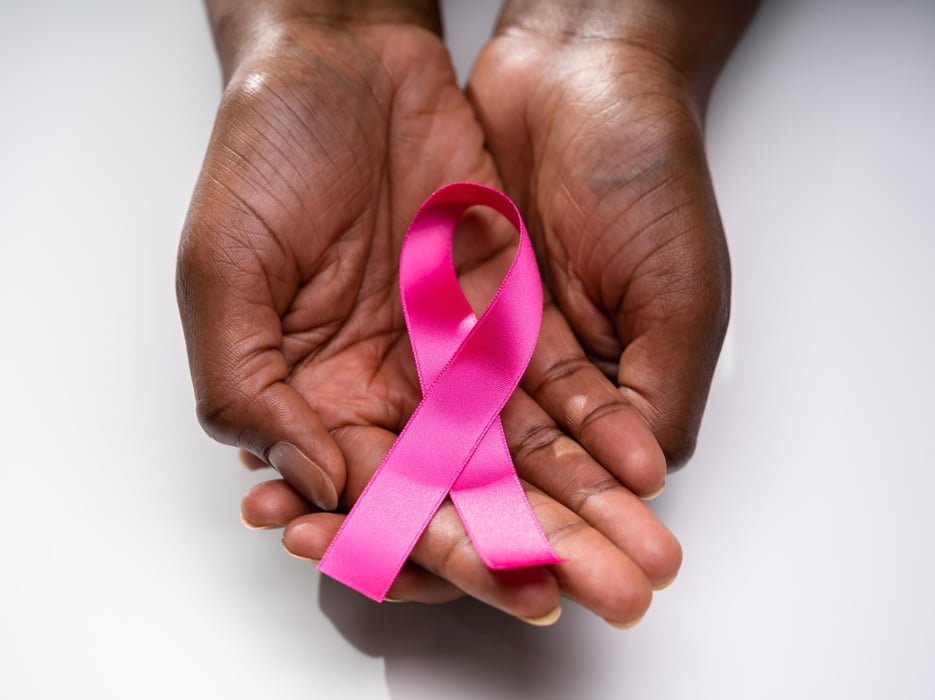What Causes Breast Cancer? Causes, Risk Factors to Know

If you're a woman who has just received a breast cancer diagnosis, there is no doubt that this is a scary time. And it’s only natural that you have questions.
How did I get it? What are the causes of breast cancer?
Here, experts address the crucial question: What causes breast cancer? Understanding its origins and risk factors can help you take informed steps toward prevention and early detection.
What causes breast cancer?
Breast cancer typically initiates from cells within the milk-producing ducts, says the Mayo Clinic. Additionally, it may originate from the glandular tissue, called lobules. In some cases, breast cancer can also start in other cells or tissues within the breast.
“The underlying cause of breast cancer is that the breast cells are growing at an abnormally faster rate rather than healthy breast cells. This can cause organ damage without treatment,” said Dr. Ming Li, a breast cancer specialist at the Leonard Cancer Institute at Providence Mission Hospital in California.
Breast cancer risk factors
The U.S. Centers for Disease Control and Prevention states that if breast cancer runs in your family or if you carry inherited mutations in BRCA1 and BRCA2 genes, your risk of developing breast cancer and ovarian cancer may be considerably higher. Having an open conversation with your doctor regarding risk-reduction strategies, including medications to inhibit or reduce estrogen levels, and surgical options is crucial.
However, according to the Mayo Clinic, there are some overall breast cancer risk factors that women should know.
- Gender: Being female significantly increases the likelihood of developing breast cancer compared to men.
- Age: The risk of breast cancer rises with advancing age.
- Personal history of breast conditions: A history of lobular carcinoma in situ (LCIS) or atypical breast hyperplasia increases risk.
- Previous breast cancer: Having had breast cancer in one breast raises the risk of cancer occurring in the other breast.
- Family history: A family history of breast cancer, especially at a young age in close relatives like mother, sister or daughter escalates the risk.
- Inherited gene mutations: Genetic mutations like BRCA1 and BRCA2 inherited from parents can significantly increase breast cancer risk.
- Radiation exposure: Past radiation treatment to the chest during childhood or adolescence raises the risk.
- Obesity: Being obese is associated with an increased risk of breast cancer.
- Early menstruation: Starting menstruation before age 12 raises breast cancer risk. The Susan G. Komen Foundation suggests that females who begin their periods before age 11 have about a 15% to 20% higher risk of breast cancer than women who begin their periods at age 15 or older.
- Late menopause: Beginning menopause at an older age is linked to a higher likelihood of breast cancer.
- Late childbirth: Women giving birth to their first child after age 35 may face an increased risk.
- Nulliparity: Women who have never been pregnant have a higher risk than those who have had one or more pregnancies.
- Postmenopausal hormone therapy: Taking hormone therapy combining estrogen and progesterone to manage menopause symptoms is associated with an increased risk.
- Alcohol consumption: Regular alcohol consumption is linked to an increased risk of breast cancer.
Certain behaviors can possibly lessen your risk of developing breast cancer. For example, as obesity can increase your risk, taking steps to lose weight may help. The CDC suggests that if your BMI (body mass index) is 25 to <30, it falls within the overweight range. And, if your BMI is 30.0 or higher, you are considered obese.
Additionally, the Susan G. Komen Foundation says that smokers who have been smoking for more than 10 years have a 10% higher risk of breast cancer than women who’ve never smoked.
Related Posts
U.S. May Soon See Sharp Drop in Omicron Cases, Experts Say
WEDNESDAY, Jan. 12, 2022 (HealthDay News) -- The Omicron surge may have peaked...
Una escasez de salud mental podría tener un rol en el suicidio de jóvenes de EE. UU.
MIÉRCOLES, 23 de noviembre de 2022 (HealthDay News) -- Los jóvenes no están...
Es más probable que las mujeres con discapacidades pasen hambre y tengan una mala dieta
VIERNES, 9 de septiembre de 2022 (HealthDay News) -- Unos investigadores que...
